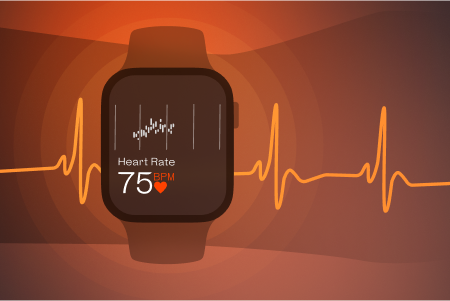


Welltory — All-in-One Wellness App.




Home » Sex & Relationships » Sex and Sleep — What’s the Relationship
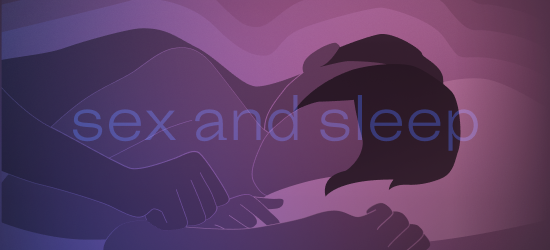
Sexual health is an important component of overall health in adults. It’s not just physical but it is also about emotions and relationships that have a positive impact on quality of life (of course, if it is consensual and generates happy emotions!).
Sleep also has extensive effects on health and general well-being and is critical to every system of the body and every process that happens within. A typical night’s sleep consists of several sleep cycles. Continuous seven to nine hours sleep without interruption allows you body to recover. More on importance of sleep and how you can analyze it with Welltory App can be found here.
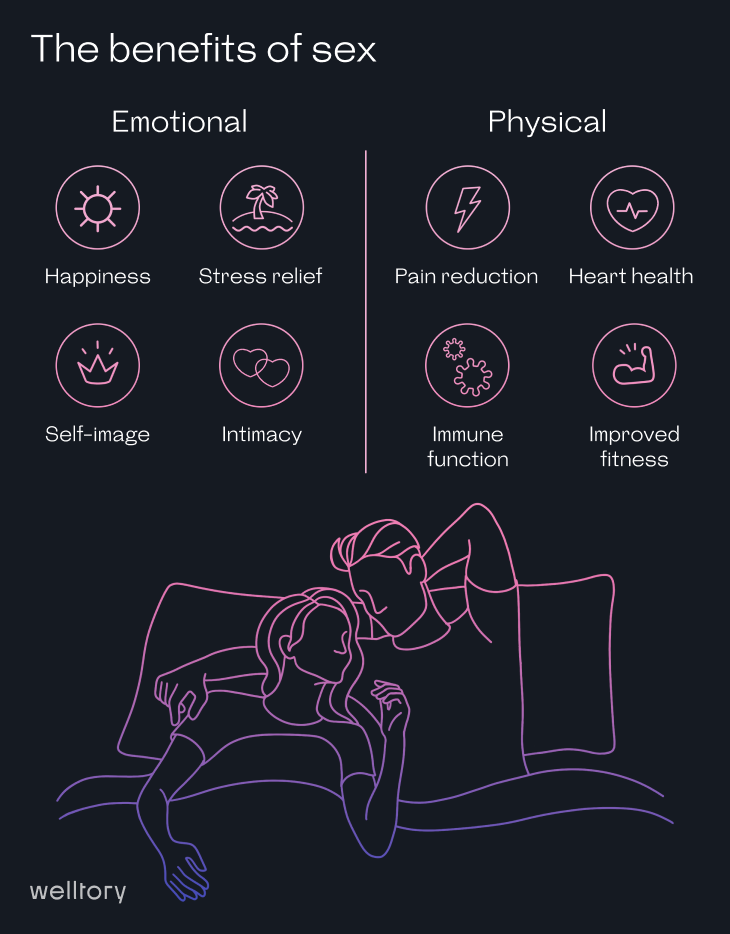
Despite the significant role that both sleep and sex have in overall wellness, the relationship between them is still being researched. Surprisingly only a few studies have already explored the possibility that sexual activities may be associated with better quality sleep. But more recent studies in health sciences have started to reveal an important link between sex and sleep, demonstrating how quality sleep can promote a better sex life, and how a healthy sex life can improve sleep. It’s important to note that everyone’s sleep needs and patterns are different, so the effect of sex on sleep may vary from person to person.
So does sex help you sleep? It’s known that oxytocin (hormone of happiness) is elevated as a result of sexual intercourse. It’s associated with a better quality of life, a reduction in stress and improved sleep quality in both males and females. Some studies even argue that promoting safe sexual activity before bed may offer a novel behavioral strategy for promoting sleep.
First of all, the physical and emotional release that comes with sexual activity promotes feelings of relaxation and reduce stress, which can make it easier to fall asleep. The release of endorphins during sex or masturbation and reduction of cortisol can act as a natural sleep aid, helping to soothe the body and mind. A 2019-study found that orgasms with a partner were associated with the perception of favorable sleep outcomes, however, orgasms achieved through masturbation (self-stimulation) were associated with the perception of better sleep quality and latency.
One of the key factors that contributes to the positive effects of sex on sleep is the release of oxytocin, which we briefly mentioned before. Oxytocin is a neurochemical that is released during sexual activity and orgasm, and it is known for promoting feelings of bonding and trust – it is the “cuddle hormone“. Its release leads to a sense of emotional security and well-being, which can make it easier to fall asleep. People tend to sleep better after sex because of hormones involved in sexual activity.
Both sex and masturbation can help to reduce stress, which is one of the most common causes of insomnia. Sexual activity, including both partnered and solitary sexual behavior is associated with reduced stress levels as measured by cortisol levels and self-reported stress. One study’s results suggest that sexual activity was an effective stress-management strategy during COVID-19 lockdowns.
The physical activity involved in sex can also tire the body, making it easier to fall asleep. Sexual activity raises the body temperature, and the subsequent drop in temperature after sex can help to signal the body that it’s time to sleep.
It’s also worth noting that the timing of sexual activity can also have an effect on sleep. If you have sex too close to bedtime, it may make it difficult to fall asleep for some indifiduals. So while some people will fell tired and sleepy after an intercourse, for others, it might actually be awakening. This is because sexual activity can raise the body’s heart rate and release adrenaline making it more difficult to relax and fall asleep.
A good night’s sleep can lead to an increase in sexual desire and a better sexual experience, while poor sleep can lead to decreased libido and sexual dysfunction. Insufficient sleep, disrupted sleep affect many aspects of human health including sexual function. In fact, research shows that patients with urological disorders or erectile dysfunction (ED) may have a sleep disorder that contributes to their urological or/and sexual dysfunction.
One of the most obvious ways that sleep affects sex is through its effect on energy levels. When we are well-rested, we have more energy to devote to physical activity, including sex. Poor sleep, on the other hand, can lead to fatigue, mood swings and a lack of energy, which can make sexual activity less enjoyable and less satisfying.
Additionally, sleep also affects the body’s production of hormones that are important for sexual function. Testosterone, a hormone that is important for sexual desire and function in men, is released during deep sleep. Moreover, if we look at young men, there is a strong link between their sleep architecture and testosterone secretion that peaks during sleep. When a person doesn’t get enough deep sleep, their testosterone levels may become lower, leading to decreased libido. For example, studies demonstrate that male patients with obstructive sleep apnea have lower serum testosterone.
The release of cortisol, which is associated with stress and insomnia, affects sexual function in both men and women. It interferes with the production of estrogen and testosterone and, therefore, leads to decreased sexual desire and difficulty achieving orgasm. Stress can also cause erectile dysfunction in men, which can make it difficult to achieve and maintain an erection.
When we look at females, age-related and physiological changes in a woman’s body caused by sex hormones could potentially lead poor sleep quality. However, if we look at pregnancy and the postpartum period that are associated with increased sleep disturbances, their relation to the hormonal milieu and its effect on sexual desire still needs to be researched.
Get Welltory
for better sleep
Get Welltory
for better sleep
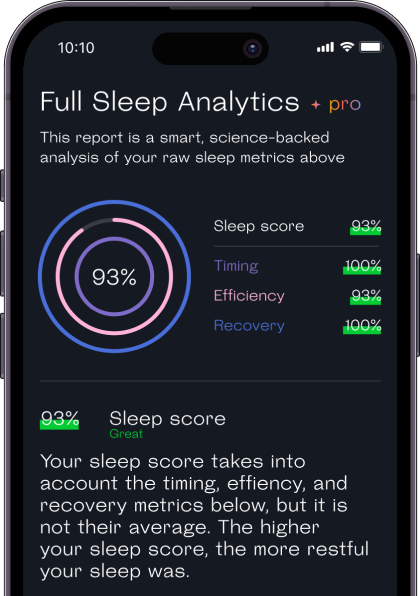
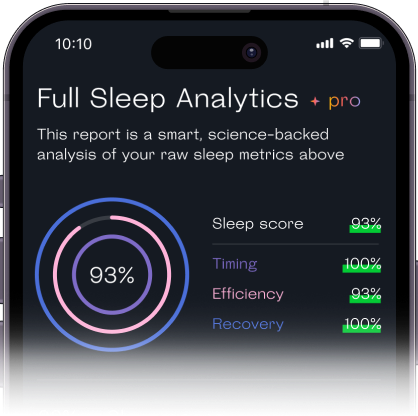

Additionally, constant lack of sleep and insomnia can lead to depression and anxiety that also affect sexual function. These mental health conditions can also lead to decreased libido and difficulty with sexual performance. As you can see libido is very fragile and is easily affected by how you sleep and how you feel. Moreover, people who have trouble sleeping might have specific routine and be very sensitive to anything that might threaten their sleep. Naturally, one of the things that can disturb sleep is a bed partner.
Choosing a right time to sleep can also affect sexual function. If you go to bed too late or wake up too early, it can disrupt your natural sleep cycle and lead to poor sleep. Can you guess what it will result in? We can’t surprise you here – decreased libido and sexual dysfunction.
On the other hand, a good night’s sleep can lead to an increase in sexual desire and a better sexual experience. When we are well-rested, our bodies are able to produce the hormones necessary for sexual function, such as testosterone, estrogene, and progesterone. Additionally, when we are well-rested, we are less likely to be stressed, which can improve sexual function.
We mean your performance in two most obvious bed activities – sex and sleep. Heart rate variablity is an excellent tool for seeing how well you’re doing and how your body copes with stressors. It’s no surprise that your well-being and, hence, heart rate variability is also affected by poor sleep and general dissatisfaction.
Research shows a link between heart rate variability and sexual function that might be bidirectional with HRV reflecting central processes underlying sexual motivation. Lower resting HRV reflects sympathetic and parasympathetic influences and is related to the lesser frequency of penile-vaginal intercourse (PVI) in both sexes, and to the lower sexual arousal and absence of orgasm from PVI in women. If you want to understand what influences your sexual desire, tracking your HRV with Welltory might be a very good idea.
If you have concerns about your sleep or sexual function, it’s always best to speak with a healthcare professional. If you are curious to understand the link between sex and sleep and improve quality of both of them, we are here to assist you along the way.
We can’t track sex per se, but we can track and analyze your HRV. If you’re monitoring your sleep using a fitness tracker or a sleep app, Welltory can show you how HRV, sleep and sex are related. Our suggestion is to measure your HRV before and after sex to allow the app to learn the difference and build your personal baseline. You can also help us understand you better by letting the app know when and how you sleep on a night without sex and on a night with it. Don’t worry, we won’t judge you if it’s too much or too little!
In general, we suggest our users to actively use Welltory to run experiments with measurements of their HRV in different situations. Our app will then provide you with tips on how to improve both your sleep and your sex life at the same time.
Welltory Team, 03 Feb. 2023
 App Store
App Store
 Google Play
Google Play
 Huawei AppGallery
Huawei AppGallery
 Galaxy Store
Galaxy Store

